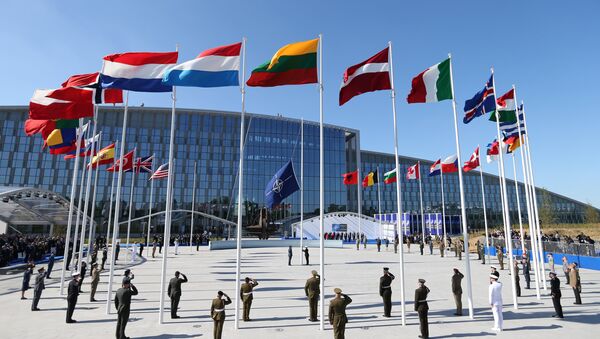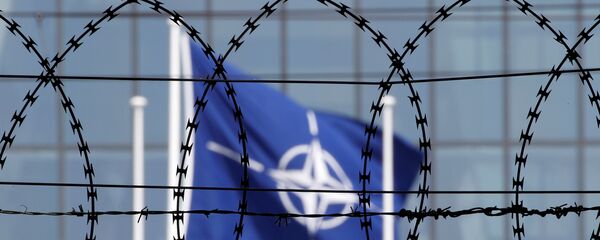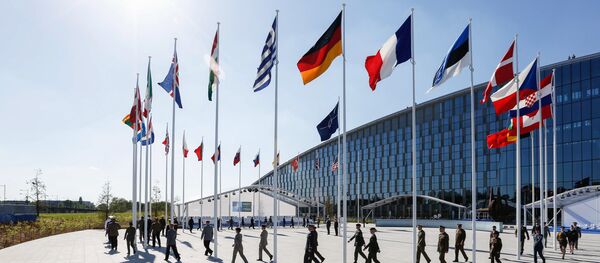He said that Russia was developing new types of conventional and nuclear weapons and is able “to deploy troops for long distance and to use them effectively quite far away from their own territory."
“We face a huge modernization of the Russian military,” General Pavel added.
Noting that even though he had no reason to describe the Russian leadership’s intentions as aggressive, he added that Russia’s growing military prowess was undeniable — even if its intentions were “unclear.”
“So we take this even potential threat very seriously,” Pavel stated.
In an interview with Sputnik, Moscow-based foreign policy expert Dmitry Ofitserov-Belsky said that NATO officials normally say such things before they start discussing their military budget.
Russia and NATO remain in touch
Still, despite the current cool in relations, Russia and NATO haven’t stopped talking to each other.
On Monday, Russia’s Deputy Prime Minister Dmitry Rogozin shared with Sputnik his impressions of the meeting he had earlier had with NATO’s Deputy General Secretary Rose Gottemoeller during the inauguration of the new Serbian President Alaksandar Vucic.
“There were many other officials present [at the inauguration] and even though these people have sanctioned me I still had a long chat with Rose Gottemoeller,” Rogozin said without elaborating.
In March, Russia military chief of staff General Valery Gerasimov had a telephone linkup with Petr Pave. The exchange, the first in three years, focused on security issues, military coordination, prevention of armed conflicts and NATO’s participation in international peacekeeping operations.
Gerasimov also conveyed to General Pavel Moscow’s concern about NATO’s increased military activity along Russia’s borders.
False pretexts
Last week Russia’s Foreign Minister Sergei Lavrov accused NAQTO of using far-fetched pretexts to deploy its military infrastructure in close vicinity of the Russian borders.
“All these preparations that are now being implemented in practice, when NATO infrastructure approaches our common borders, when new units are sent there… we understand perfectly well that the pretexts used to justify such actions are far-fetched," Lavrov said in an interview with Belarusian media.
He added that Russia had no plans whatsoever to attack any member of the North Atlantic Alliance.
"I still have a high opinion of the quality of military thinking, military training in the United States, Germany, the United Kingdom and other countries of the North Atlantic alliance. I can’t believe that they have even the slightest assumption that Russia will attack NATO," Lavrov emphasized.
Sergei Lavrov noted that the current deployment of NATO infrastructure in Eastern Europe reflected its desire to “fill the void” it believes was left behind by the 1991 Soviet breakup.






